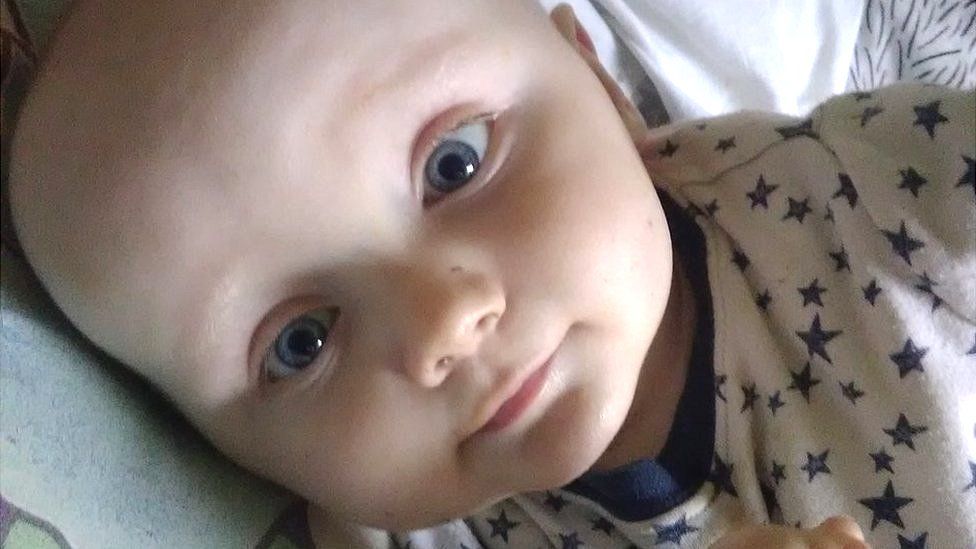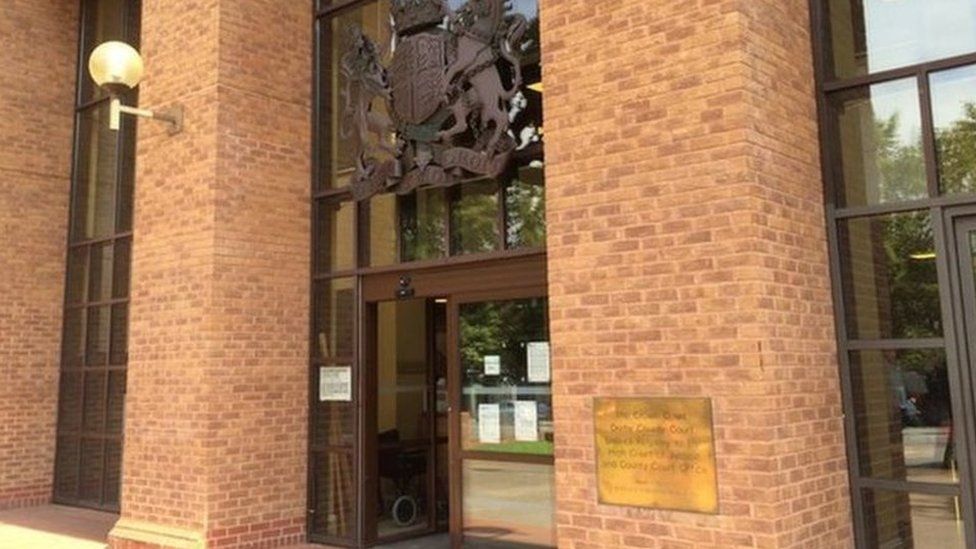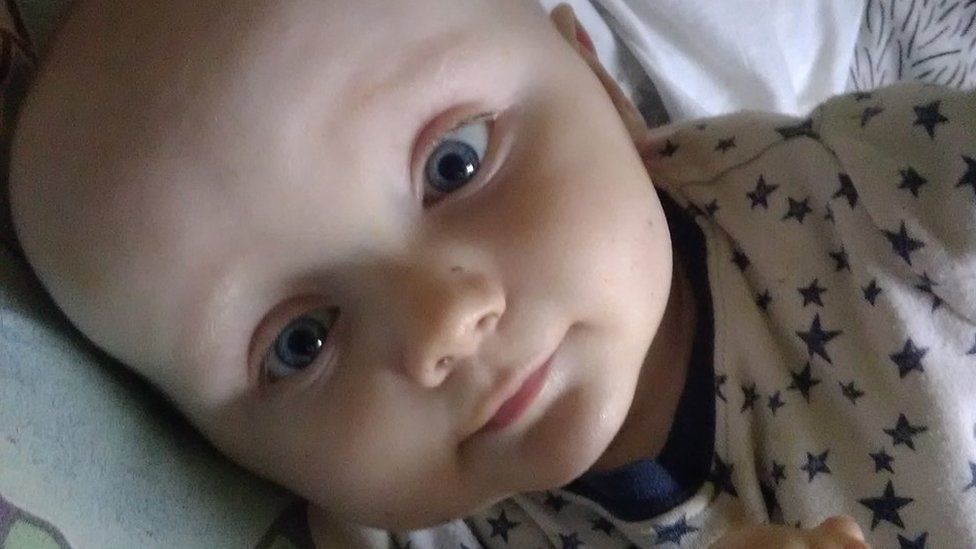
A couple who murdered their 10-month-old son 39 days after he was placed back into their care have been jailed for life.
Stephen Boden and partner Shannon Marsden killed Finley Boden, who died on Christmas Day in 2020.
Finley was found to have suffered 130 “appalling” injuries.
Boden and Marsden, from Chesterfield, Derbyshire, were ordered to serve a minimum of 29 and 27 years respectively at Derby Crown Court on Friday.
Sentencing, Judge Amanda Tipples said the pair had subjected their son to “unimaginable cruelty”.
There was a single audible gasp from the public gallery, with the defendants hunched in their seats staring forward, as the sentences were passed.
The court heard the murder was “savage and prolonged” with a “sadistic motivation”.
This video can not be played
To play this video you need to enable JavaScript in your browser.
Paramedics were called to the couple’s “cluttered” and filthy terraced home in Holland Road, Old Whittington, in the early hours of Christmas Day after Finley suffered a cardiac arrest.
He was taken to hospital and later pronounced dead.
Finley’s injuries included 57 breaks to his bones, 71 bruises and two burns on his left hand – one “from a hot, flat surface”, the other probably “from a cigarette lighter flame”.
The court heard the fractures to Finley’s bones led to him developing infections, including pneumonia and sepsis that ultimately killed him.
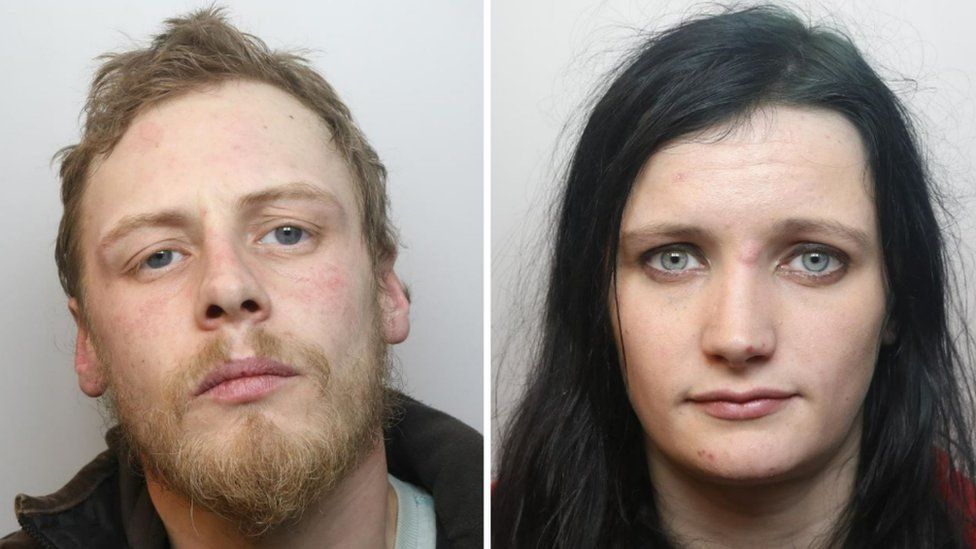
Toxicology tests showed cannabis was found in Finley’s blood, indicating that he must have inhaled smoke in the 24 hours before his death.
The court heard Boden, 30, and Marsden, 22, who were convicted of murder following a trial, worked together to keep professionals away from Finley to protect each other and cover up serious violence.
This included cancelling a health visitor appointment two days before he died and telling social services when they arrived unannounced that Finley may have Covid-19 and refusing to let them in.
The judge said they were “both persuasive and accomplished liars” who denied Finley medical care that would have saved his life.

If you have been affected by any of these issues, you can visit the BBC Action Line.

She said Finley had 46 rib fractures and 12 other bone fractures, including to his pelvis, both legs and right arm, which were inflicted between 4 and 22 December.
They required “considerable force” to inflict and meant he could not breathe properly, the court heard.
From then, Finley’s daily experience was “one of considerable pain, distress and suffering”.
“He was no longer able to sit up and play with his toys. He was unable to feed himself,” the judge said.
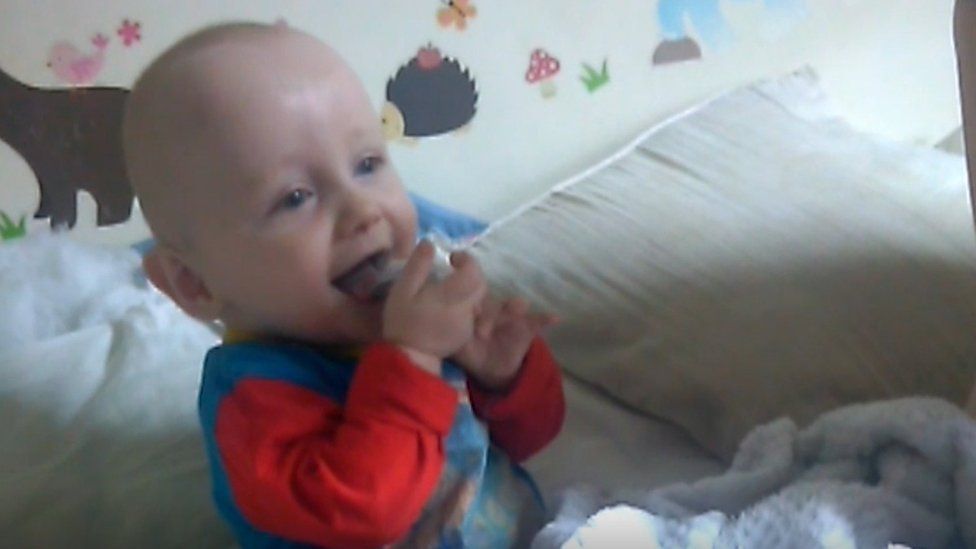
Boden and Marsden, the court heard, used Covid as a “perfect excuse” to keep social workers and family from seeing Finley.
The judge said his multiple injuries could only have been inflicted “by two people acting together”.
She added: “No-one heard Finley cry or scream in pain because you inflicted the injuries on him together, with one of you fracturing his bones and the other keeping him quiet with your hand over his mouth.”
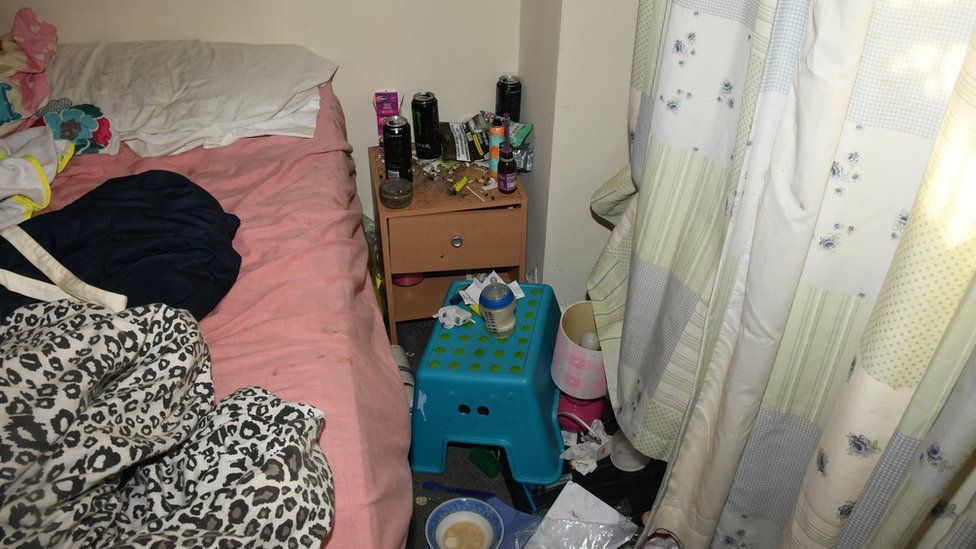
Prosecutor Mary Prior KC said Finley’s injuries prevented him from eating, causing him to lose significant amounts of weight.
Mrs Prior said Finley was made to sleep in bedding stained with blood and vomit.
“The defendants knew they were causing serious harm [to Finley] and persisted with it – they were indifferent to it,” she added.
She read victim impact statements from the defendants’ relatives, which said Finley was a “happy, chuckling baby” who was “callously abused”.
“When Finley died, part of us died as well,” they said.
Mrs Prior said the defendants had “no ability” to “provide any account as to what they did or why they did it”.
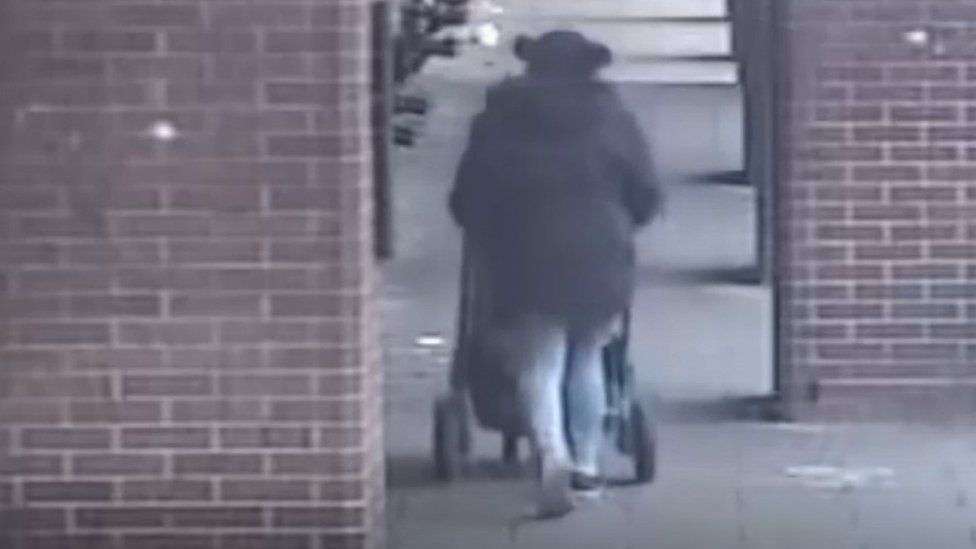
A child safeguarding review into the circumstances around Finley’s death is currently under way.
After Finley was born on 15 February 2020, social workers had decided to remove him from his parents as the local authority, Derbyshire County Council, believed he was likely to suffer “significant harm” at home.
Over the next six months, Boden and Marsden lied to social workers to persuade them they had made positive changes, helped by Covid restrictions that limited physical interactions.
Finley was returned to their care after a family court hearing on 1 October, the papers of which were released after a media application to the High Court.
In the papers, the local authority said Finley should return gradually through a transition plan over about four months.
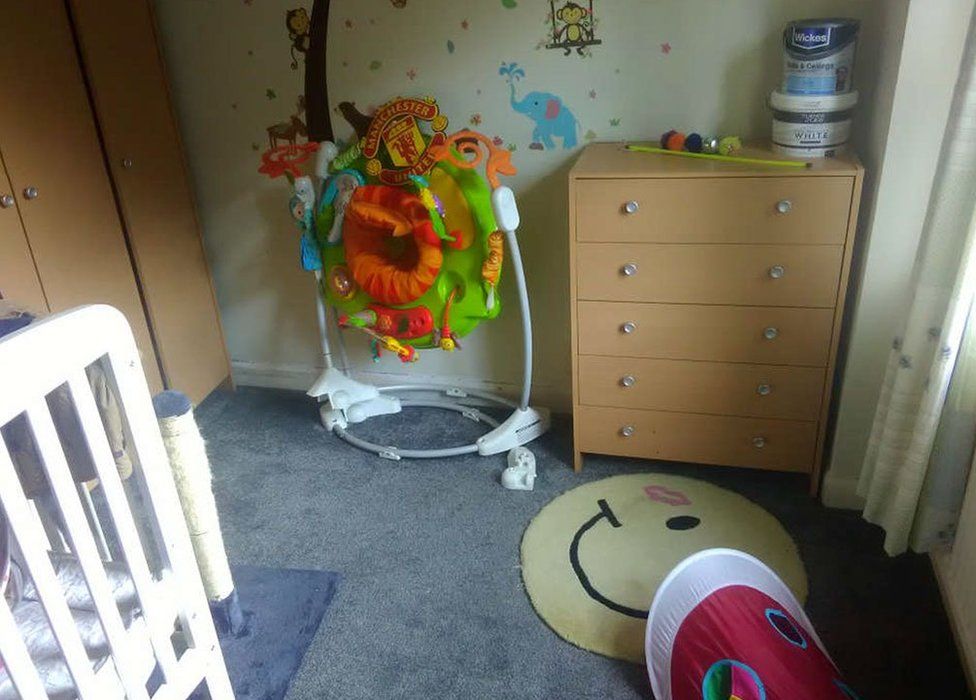
A guardian appointed to represent Finley’s best interests, Amanda O’Rourke, submitted a report to the hearing, which was held over the phone due to the pandemic.
She had only been able to see him once, via a WhatsApp video call while he was with his carers.
Finley was a “smiler”, she wrote in her report, who liked to “blow raspberry’s” (sic).
She accepted the squalor, drug use and domestic violence in the parents’ past and her report said she agreed in principle with the transition plan, but said it should take place much faster, given the parents had “clearly made and sustained positive changes”.
Ms O’Rourke’s report said Finley should go back to their care “within a six to eight-week period”.
The final decision was made by two magistrates assisted by a legal adviser – this is because magistrates are not legal experts.
In their judgment, they supported the guardian’s view that an eight-week transition was a “reasonable and proportionate” length of time.
There is no suggestion that the magistrates made a mistake in law.
A statement from Cafcass – the independent Children and Families Court Advisory Service that employed the guardian – said: “It is not possible to say whether a longer transition plan would have prevented Finley’s death.”
After Friday’s hearing, a Derbyshire County Council spokesperson said: “We remain fully engaged with the independent Local Child Safeguarding Practice Review – a statutory legal process commissioned by the Derby and Derbyshire Safeguarding Children Partnership to look in depth at the role of all agencies following Finley’s death.”
The council said the review would conclude later in 2023.

Follow BBC East Midlands on Facebook, on Twitter, or on Instagram. Send your story ideas to eastmidsnews@bbc.co.uk.
Related Topics
-
-
2 November 2022
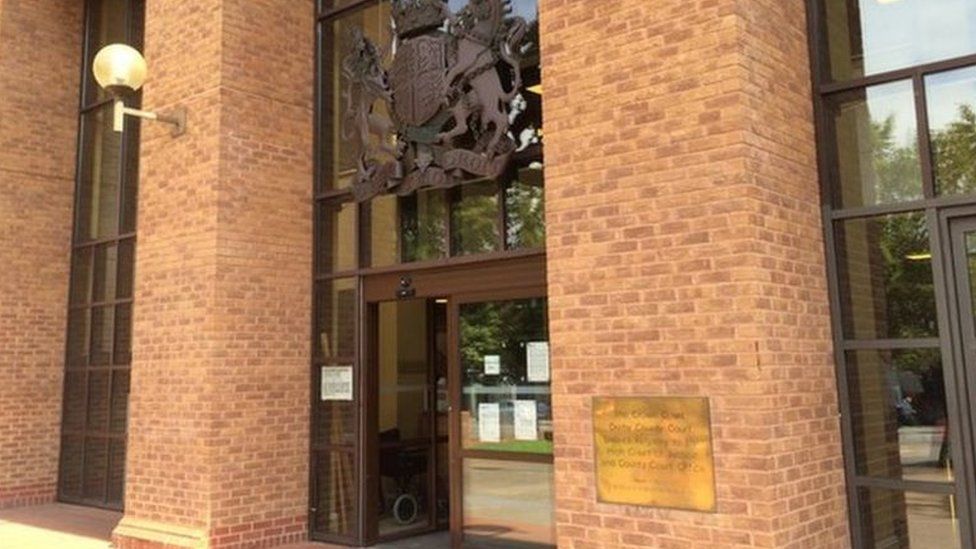
-

